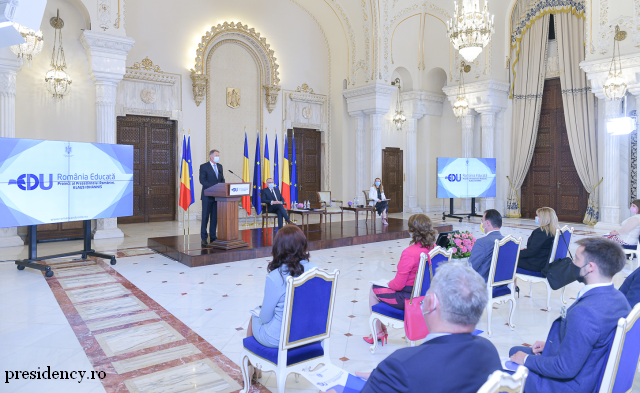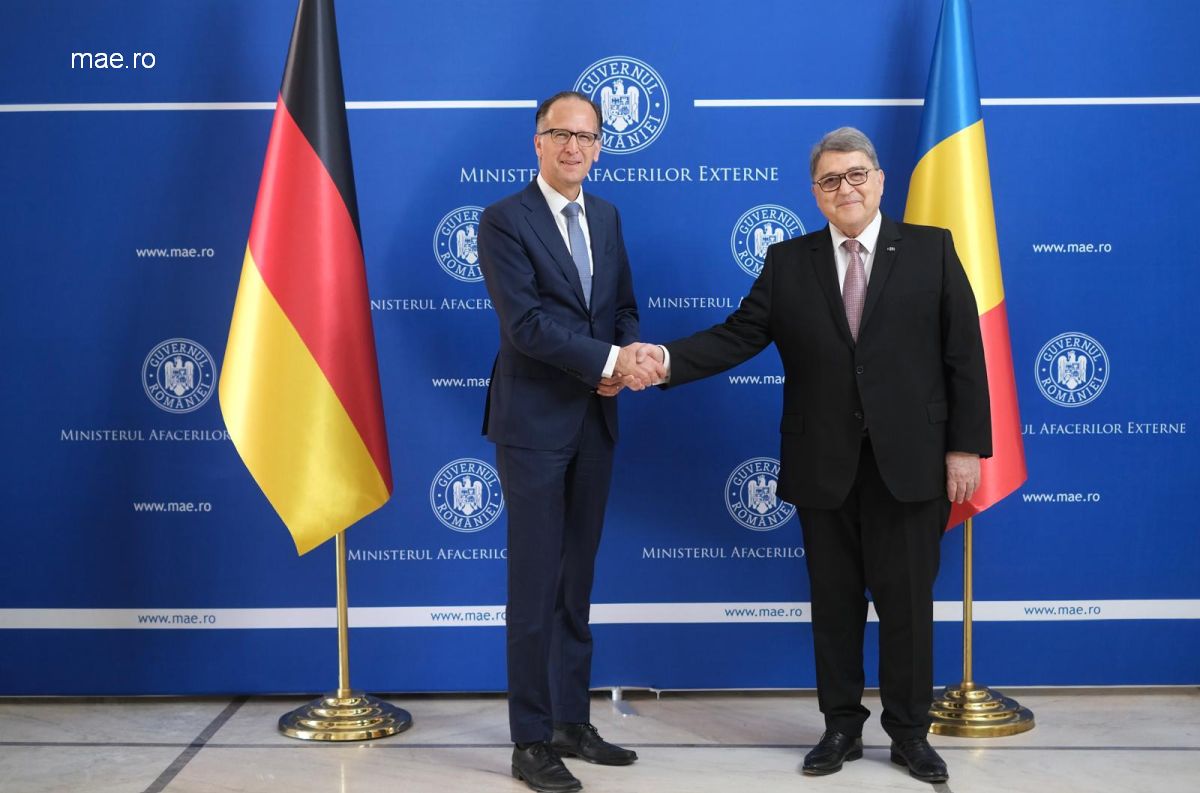Educated Romania: a presidential project
Talks have been resumed in Romania regarding the “Educated Romania project launched by the president 5 years ago

Corina Cristea, 07.07.2021, 13:50
Educated Romania, a country project launched in 2016, aims at improving Romanian education, which is lagging behind Western European systems, as the project initiator, president Klaus Iohannis warned.
Without having so far triggered any changes whatsoever in the education system, the initiative has been subject to successive public debate series over the past few years. These days it is back in the spotlight, with consultations held by the head of state with the political class, education stakeholders and NGOs involved in the project, as the public debate is drawing to a close.
The presidential administration announced last week that the projects main reform goals and lines of action will be presented during these talks, so that a political and social consensus would be reached, which would guarantee its implementation and its approval by all political parties.
The reform should lead to a decentralised education system, better teachers, new infrastructure and equipment standards, academic subjects and assessments focused on developing skills and on improving access to education.
The changes outlined in the Educated Romania project include testing for skills, decentralisation, flexibility, lifelong learning for teachers and schools adjusted to the labour market. Solutions for an efficient education system include a smaller number of school subjects, smaller workloads for children, with a focus on their skills and creativity.
One major change concerns the high school system, with 3 routes—theoretical, professional and vocational—spanning 4 years, and graduates from all 3 categories able to take the baccalaureate if they choose to and transfers allowed between high school types.
The professional route involves obtaining a level-3 professional certification at the end of the 11th grade and a level-4 certification at the end of the 12th grade. Colleges and post-high schools would subsequently provide level-5 certification.
The baccalaureate exam would assess a set of skills that all high school graduates, regardless of the profile, should have. Some high schools, where the demand is higher than the number of seats available, may also organise admission exams.
According to the project coordinators, schools must provide information and train children for life. Some of the targets of the project for 2030 include bringing the early school dropout rate down to a maximum 10%, reducing functional illiteracy by at least 50%, Romania ranking among the worlds top 30 countries by PISA test results, a minimum 80% pass rate in middle school final exams and a 75% pass rate in the Baccalaureate exams.
Presidential adviser Ligia Deca explained that the “Educated Romania project is a plan rather than a law, and that next week the government would endorse a memorandum setting clear deadlines within this project. (tr. A.M. Popescu)






























